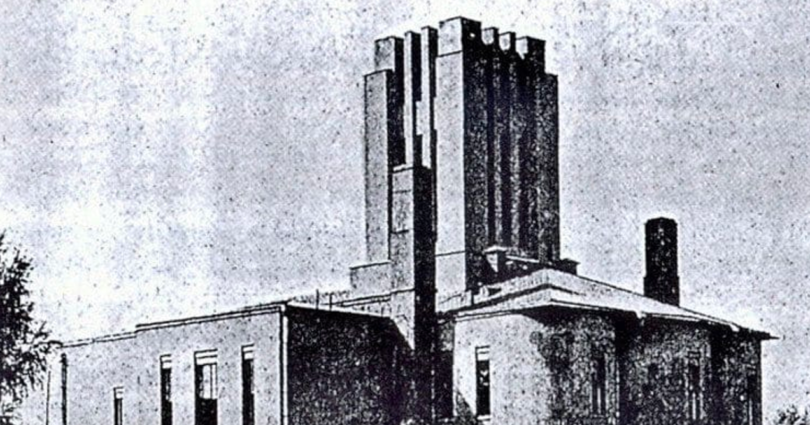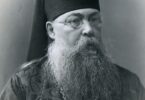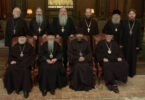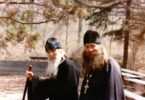Introduction
Since the Apostolic era, the Church has consistently prohibited cremation. While in the 20th century the Roman Catholic Church relaxed its prohibition of cremation, the Orthodox have continued to reject the possibility of cremation because cremation is inconsistent with Christian teaching about the resurrection of the dead. Metropolitan Kallistos summarises this position: “Because of our reverence for the human body and our belief in the body’s ultimate resurrection, in the Orthodox Church, we do not permit cremation. Unfortunately, this prohibition, which is based on profound theological principles, is sometimes disregarded.” (T. Ware. The Orthodox Church. Penguin Books [London, 1995.] 233.)
The article below references the fact that in 1932 the Sobor of Bishops of the ROCOR, meeting in Yugoslavia, issued a statement re-affirming the Church’s stance against cremation. This may well have been prompted by the cremation in the previous year of Anna Pavlova, the world-famous ballerina who had been a principal artist of the Imperial Russian Ballet and the Ballets Russes of Sergei Diaghilev.
Anna Pavlova had passed away on Friday, 23rd January in The Hague at the age of 49. Anna’s tragic death was quite unexpected and she was mourned the world over. Her husband, Victor Dandré, arranged for her body to be returned to London, where Anna had been living since 1914. The Times reported that Anna’s body arrived at the Russian Orthodox Church on Wednesday, 28th January where it “lay in state” for 24 hours. On Thursday, 29th January, after Divine Liturgy, the funeral service was chanted by the Very Reverend Archpriest Nicholas Behr, assisted by Protodeacon Vladimir Theokritoff. Both clergymen belonged to the jurisdiction of Metropolitan Evlogy (Georgievsky), not the ROCOR. Following the funeral service, the coffin was taken to Golders Green Crematorium, where the remains of Anna Pavlova were cremated. At the crematorium the Russian Choir intoned funeral chants.
Since Anna Pavlova was deeply religious and had not expressed a desire to be cremated, this was shocking for the worldwide Russian Orthodox community. However, her husband insisted, saying that it was Anna’s wish to be buried as near as possible to her home, Ivy House in Hampstead, north London. Indeed, Golders Green Crematorium is about one mile from Ivy House.
In the following year the Synod of the ROCOR issued the cited-below decision, re-stating the opposition of the Church to cremation.
Nicolas Mabin, June 23, 2023
The Sobor of Bishops of The Russian Orthodox Church Abroad took up the question of the attitude of the Orthodox Church concerning the cremation of those who have departed.
From the reports that were given on this topic, it became apparent that this question was the subject of an opinion of Sobor of Bishops of The Russian Orthodox Church Abroad of 1932. At that time it was decided not to allow the burning of Orthodox Christians in crematoria in light of the fact that the proponents of this practice are atheists and enemies of the Church. The Greek and Serbian Churches have also reacted to negatively to this practice.
The cremation of the bodies of the dead is contradictory to that which was established in the Christian Church from the very beginning. It also contradicts the content of the prayers contained in the Orthodox funeral rite which is based upon the burial of the dead as a fulfillment of the judgment passed by God over Adam: “Earth thou art, and unto earth thou shalt return” (Gen. 3:19). Only a few Saints are freed from this consequence of the fall of our foreparents. These Saints, through spiritual struggles of good deeds returned their very bodies to the original goodness, and as a result the Lord gives their remains (termed Holy Relics) incorruption and miraculous grace-filled powers. The cremation of departed Christians would deprive us of such a saving and consoling manifestation of God’s mercy to us and to those righteous souls who reside in the Kingdom of Heaven.
Additionally, the history of religion demonstrates that cremation was practiced primarily by religions of satanic, militantly atheistic character and in the last decades is being disseminated under the influence of those who are unchristian and opposed to the church.
On the basis of the above facts, the Sobor of Bishops forbids the children of the Russian Orthodox Church Abroad to burn the bodies of their departed in crematoria. Priests are obligated to explain to their flock the unchristian character of such a burial. They must not perform a church funeral service over those bodies who are designated for cremation. The names of such departed may be commemorated only at Proskomidia. Panikhidas may be served not earlier than the fortieth day after their death. If anyone, on their deathbed, is stubborn in their desire to be cremated, despite the council of his attending spiritual father—the priest must not give such a person Holy Communion because of such disobedience to the Church.
In the most extenuating cases, an exception can be allowed in the form of a burial service by proxy, when it has been undoubtedly proven that the incineration of the body is taking place against the will of the departed one, as a forced act against him. But even in these cases this cannot be done without special permission of the diocesan bishop after his careful investigation of all aspects of the case. Parish priests must explain to their flock the sinfulness of the violation of the order which has been established by the Church and accepted by all Christians, in emulation of the example of our Lord Saviour Himself—and that this violation has been adopted by only the worst of the ancient pagans and contemporary opponents of the principles of the Christian faith.
If any faithful Orthodox Christian, because of his ignorance directs his close ones to cremate his body, and then dies not having received good council, and not having repented of his intention—then this will, being contrary to the laws and teachings of the Holy Church, is morally nonbinding to his close ones as are all sinful promises. This is what the Church speaks about in Her stichera on the feast of the Beheading of Saint John the Baptist: “O Herod, thou grandson of lies, it would have been better not to have sworn, if by swearing thine oath was given for evil: it would have been better to have lied and received life, rather than to have kept to the terms of the oath and to have beheaded the Forerunner.” If the close ones have promised the departed one to cremate his body, they can be released by the Church of this unwise oath, by the way of an established prayer for such cases. The soul of the departed one upon death, having seen the foolishness of its desire for cremation of the body, will be thankful to the close ones for such a decision.








